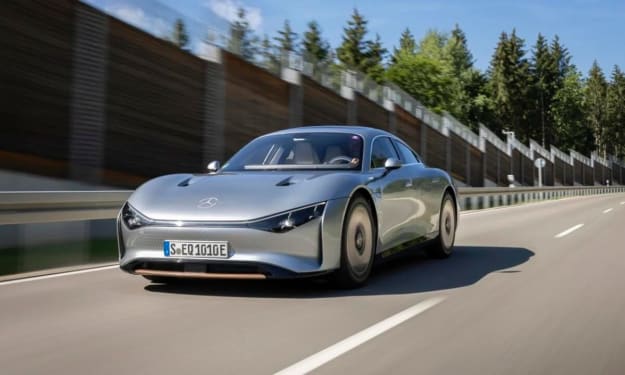What Are the Latest Trends in Electric Vehicle Technology?
Exploring the Latest Trends in Electric Vehicle Technology

Electric vehicles (EVs) have rapidly evolved over the past decade. With the increasing demand for sustainable transportation, manufacturers are constantly innovating to offer better performance, efficiency, and convenience. In this article, we will explore the latest trends in electric vehicle technology, providing insights for a car blog guest post.
Improved Battery Technology
Battery technology is crucial for the advancement of electric vehicles. Recent developments focus on enhancing battery life, reducing charging time, and increasing energy density.
- Solid-State Batteries: These batteries promise higher energy density and improved safety compared to traditional lithium-ion batteries.
- Fast Charging: New fast-charging technologies are reducing the time needed to charge EVs, making them more convenient for everyday use.
- Increased Range: Innovations in battery technology are extending the driving range of EVs, alleviating range anxiety among consumers.
Enhanced Autonomous Driving Features
Autonomous driving technology is another significant trend in the EV industry. These features aim to provide safer and more efficient driving experiences.
- Advanced Driver Assistance Systems (ADAS): These systems include features like lane-keeping assist, adaptive cruise control, and automated parking.
- Full Self-Driving Capabilities: Some manufacturers are developing fully autonomous vehicles that can navigate without human intervention.
- Sensor and AI Integration: The integration of advanced sensors and artificial intelligence is enhancing the accuracy and reliability of autonomous driving systems.
Connectivity and Smart Features
Modern electric vehicles are becoming more connected and intelligent, offering a range of smart features to enhance the driving experience.
- Vehicle-to-Everything (V2X) Communication: This technology allows EVs to communicate with other vehicles, infrastructure, and even pedestrians.
- Over-the-Air (OTA) Updates: EVs can now receive software updates remotely, improving performance and adding new features without needing a visit to the dealership.
- Smart Charging Solutions: Intelligent charging systems can optimize charging times and energy use, often integrating with home energy systems and renewable sources.
Sustainable Manufacturing Processes
Sustainability is not limited to the operation of electric vehicles. Manufacturers are also focusing on making the production process more eco-friendly.
- Recycled Materials: Many EV manufacturers are using recycled materials for vehicle components to reduce environmental impact.
- Energy-Efficient Factories: Factories are being designed to be more energy-efficient, often using renewable energy sources.
- Sustainable Supply Chains: Efforts are being made to ensure that the materials used in EV production are sourced sustainably.
Integration of Renewable Energy
The integration of renewable energy sources with electric vehicles is another emerging trend.
- Solar-Powered Charging Stations: These stations use solar panels to generate electricity, providing a sustainable way to charge EVs.
- Vehicle-to-Grid (V2G) Technology: This technology allows EVs to return electricity to the grid, helping to balance energy supply and demand.
- Home Energy Storage: Some EVs can be used as energy storage units for homes, storing excess energy from renewable sources like solar panels.
Lightweight Materials and Aerodynamic Designs
The use of lightweight materials and aerodynamic designs is improving the efficiency and performance of electric vehicles.
- Carbon Fiber and Aluminum: These materials are being used to reduce the weight of EVs, improving their range and efficiency.
- Streamlined Designs: Aerodynamic designs are being incorporated to reduce drag and enhance performance.
- Innovative Manufacturing Techniques: Techniques like 3D printing are being used to create lightweight, high-strength components for EVs.
Conclusion and Future Prospects
The electric vehicle industry is experiencing rapid advancements, driven by the need for sustainable and efficient transportation solutions. From improved battery technology to enhanced autonomous driving features, the latest trends are shaping the future of EVs.
As these technologies continue to evolve, they will play a crucial role in making electric vehicles more accessible and appealing to a broader audience. For those looking to write a car blog guest post, these trends provide a wealth of information and insights to share with readers.
About the Creator
Enjoyed the story? Support the Creator.
Subscribe for free to receive all their stories in your feed. You could also pledge your support or give them a one-off tip, letting them know you appreciate their work.






Comments
There are no comments for this story
Be the first to respond and start the conversation.